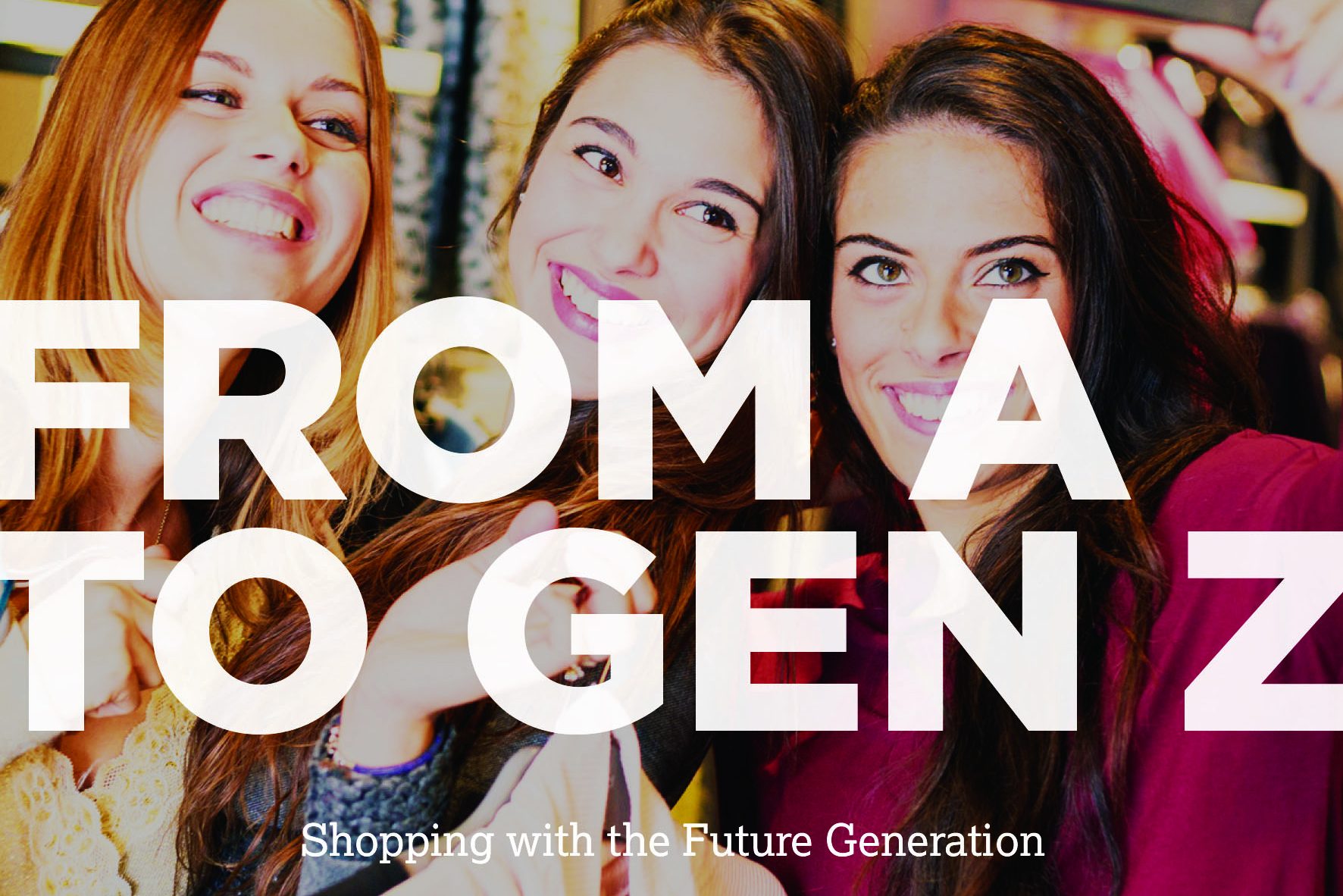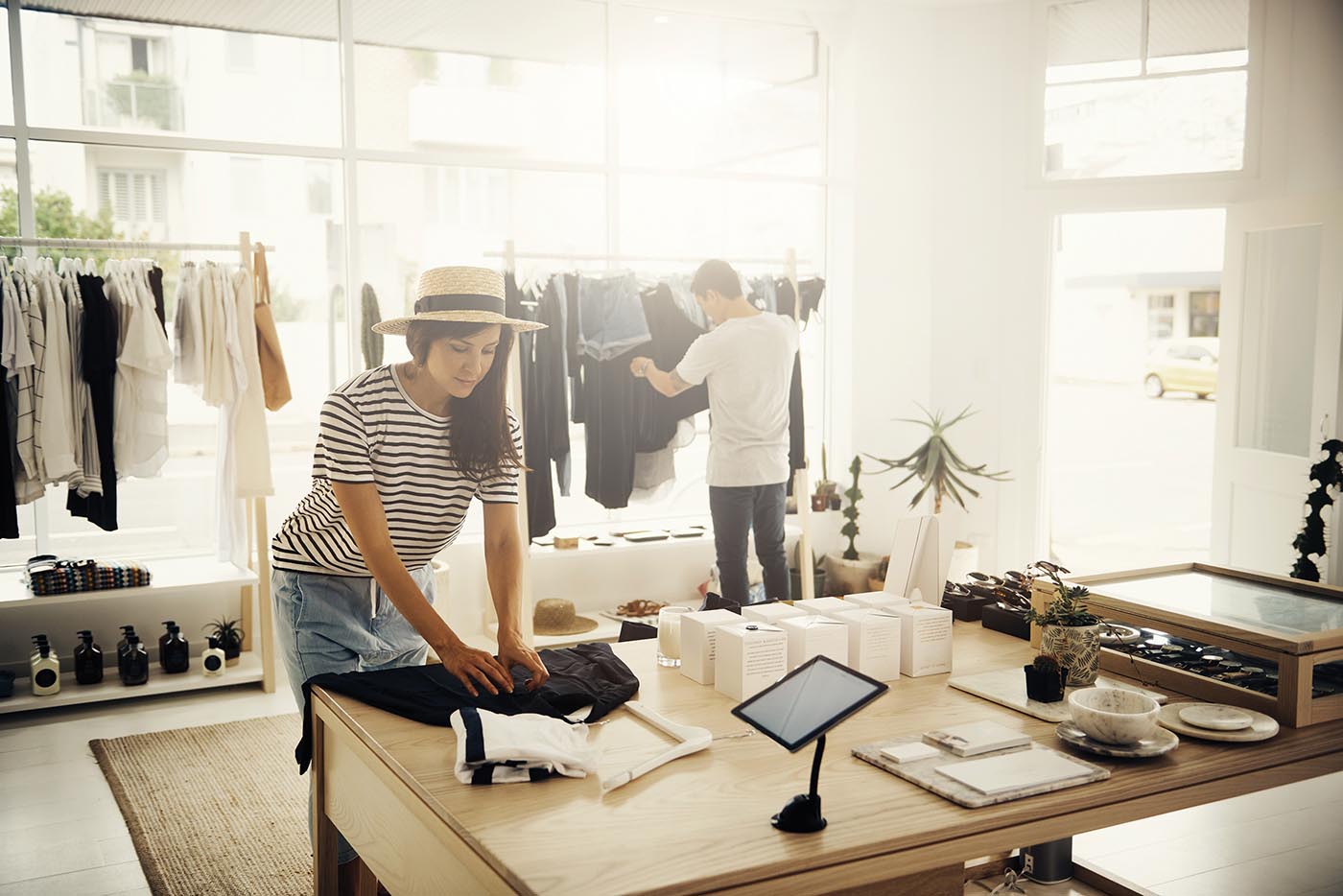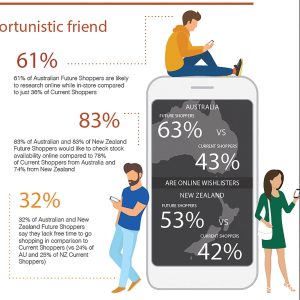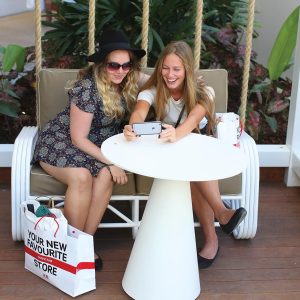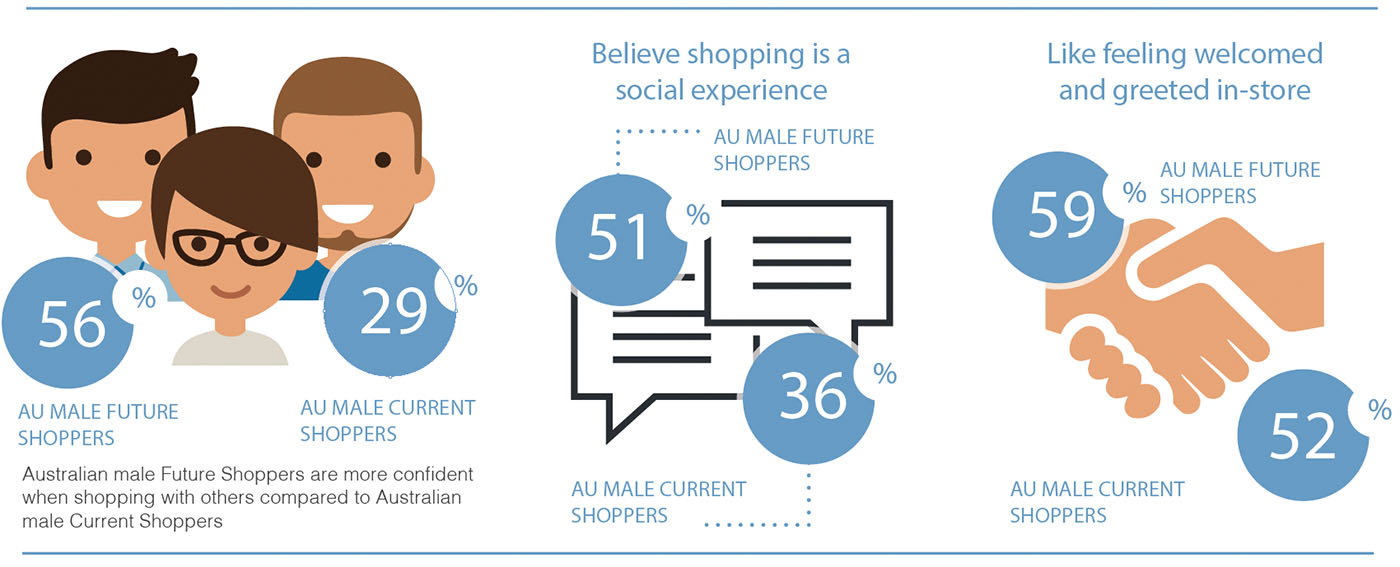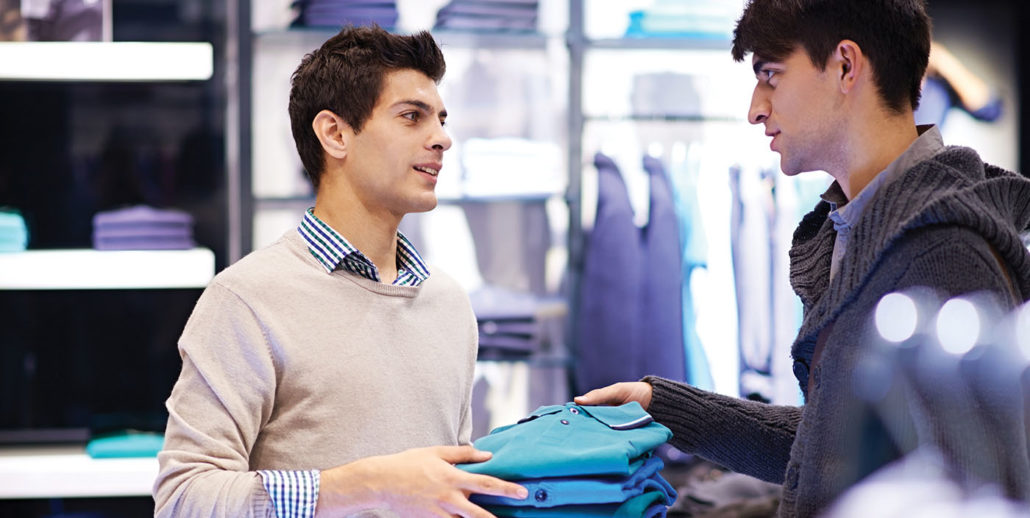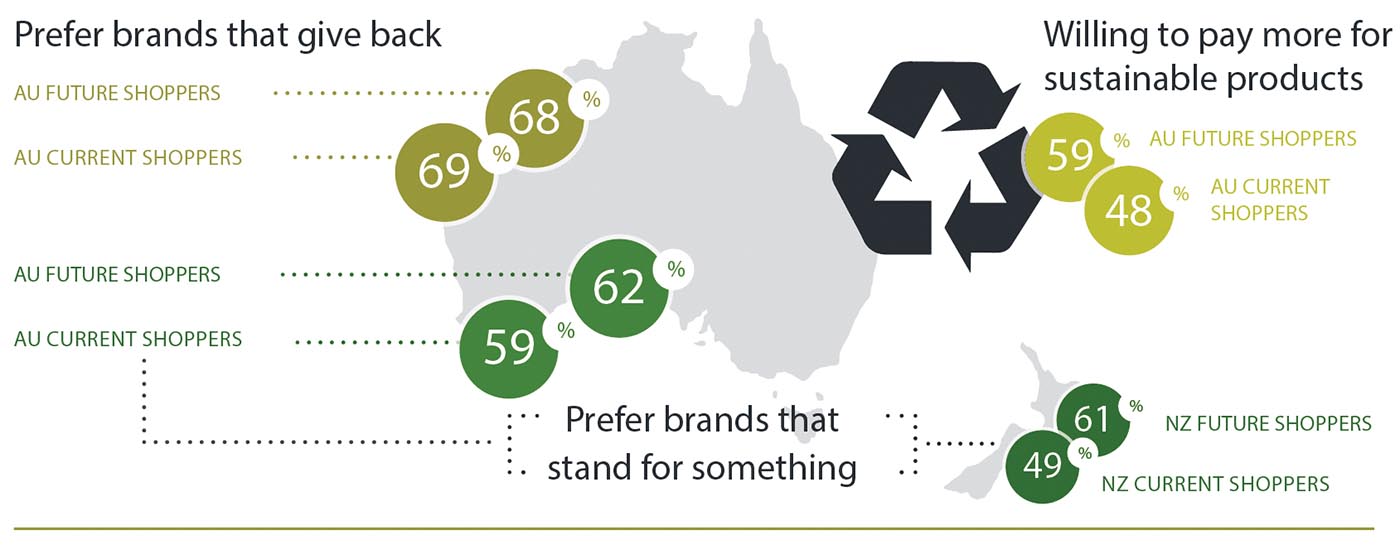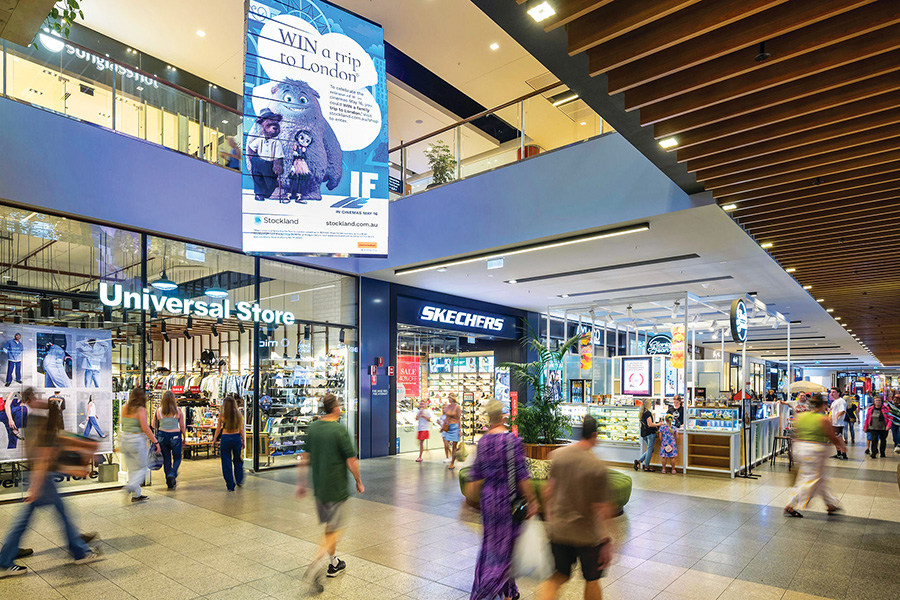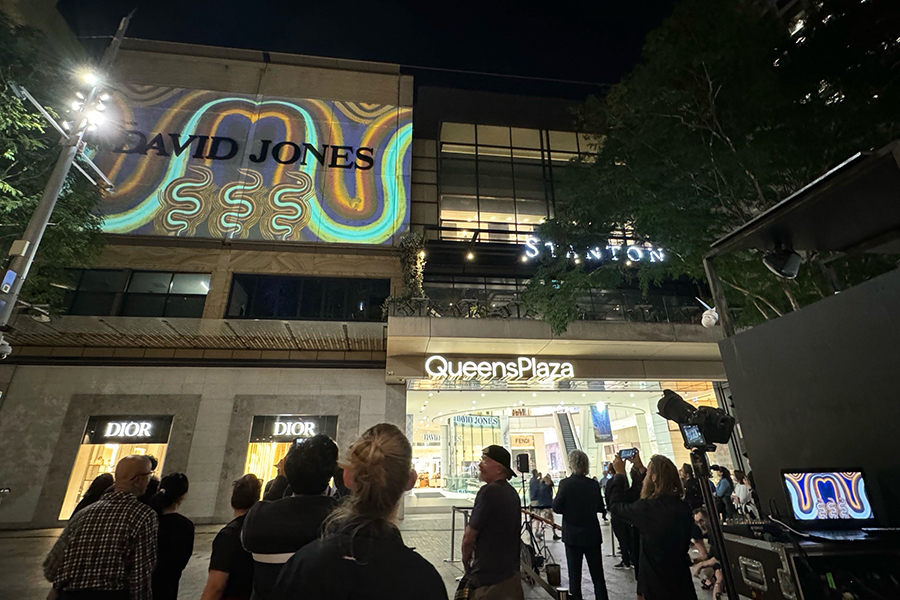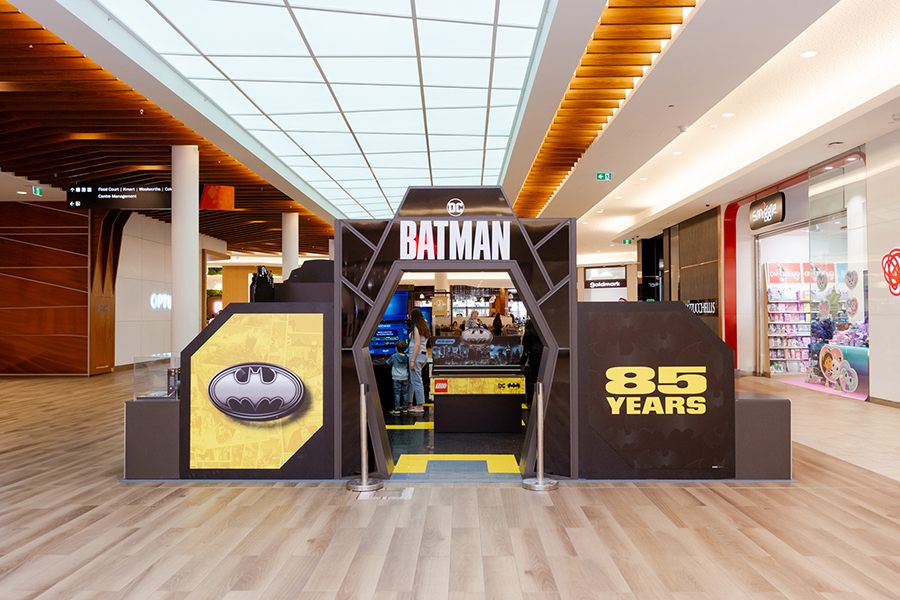It seems that the debate on ‘online versus bricks-and-mortar shopping’ has gone on forever! The reality is that the debate is over. Online shopping is here, and sois the shopping centre. The question now is how do we, in the bricks-and-mortar end of the spectrum, change the way we operate. Belinda Daly looks at some of the issues.
Last month, we released the 11th edition of the AMP Capital Shopping Centres Recommended Retail Practice Report, which has once again proven to be an insightful tool for retail and consumer research.
We’re aware of the current conversations and anxieties around the future of the bricks-and-mortar industry, particularly with the incoming arrival of Amazon in Australia. However, our research uncovered an important insight for brands, retailers and shopping centre owners that, regardless of the introduction of new variables, the future of traditional shopping in bricks-and-mortar stores remains strong!
At AMPCSC we rely heavily on research to create informed decisions to deliver the best experiences and innovations for our retailers, shoppers and investors. That said, for our Recommended Retail Practice Report (RRP) this year, we considered the future and spoke to Gen Z shoppers about their expectations for the retail industry and have revealed that bricks-and-mortar retailers are still relevant and provide tangible experiences that online shopping can’t provide.
The Future Shoppers* of our industry, Gen Zs (generally considered anyone born from 1995–2010) have emerged as the key contributors towards change in the retail space, so it’s critically important that they’re kept top of mind when considering how we can prepare ourselves for the future. With 1,710 people from Australia and New Zealand, including a boost of Future Shoppers, taking part in the nationally representative research, we gained an understanding of Gen Z’s spending habits in the digital age. With an additional 86 Future Shoppers logging in to discussion board to confirm these findings, we arrived at four key themes that we believe provide significant opportunities for retailers and shopping centres in connecting with the digitally savvy.
The report, titled From A to Gen Z: Shopping with the Future Generation, explores the following four key themes and recommendations for retailers:
- Don’t Panic – Traditional Shopping is Not Dead
- Online and Bricks-and-Mortar Work Together
- Don’t Just Sell Me Something, Mean Something to Me
- Male Future Shoppers are a Whole New Ballgame.
The first theme, ‘Don’t Panic – Traditional Shopping is Not Dead’, confirms our confidence in the future of bricks-and-mortar retail given that, despite the lure of online shopping, Future Shoppers still prefer to shop in-store more than they do online.
The RRP Report found that 87% of Future Shoppers like or love to shop in-store compared to 79% who like or love to shop online. Whilst this is unexpected, it doesn’t come as too much of a surprise, as Future Shoppers are social creatures drawn to the face-to-face, touch-and-feel experience that in-store shopping provides.
Gen Z Future Shoppers are also more social than the rest of us, as 53% of Future Shoppers revealed they are more confident when shopping with others compared to 27% of Current Shoppers*.
As retailers and shopping centre owners, it’s therefore on us to think of ways we can leverage these unique drawcards that attract the digitally savvy Gen Z target market to come in-store. Could it be through creating unique social events, or producing fun group experiences like geo-targeted Snapchat filters or in-store photo booths? The opportunities are endless!
Mecca Brands achieves this seamlessly across their Cosmetica and Maxima beauty retailers by providing valuable in-store experiences that bring the products to life through its highly personalised customer services.
Make-up artists, skincare specialists and fragrance experts are in every store, so that customers have access to bespoke beauty advice and expertise. Mecca also hosts exclusive social events, including group make-up lessons with global make-up artists, masterclasses and product launches, inviting loyal customers to get up close and personal with the world’s leading experts.
Our second theme, ‘Online and Bricks-and-Mortar Work Together’, is another key recommendation we believe is integral to achieving success in 2017. It reiterates that approaching the internet with caution, viewing the platform as a foe, is an old-school approach to thinking and encourages retailers and brands to utilise the internet; aligning our online and offline offerings to create a well-rounded and engaging consumer experiences.
The RRP Report reveals that the internet plays a role throughout Future Shoppers’ entire shopping experience.
Did you know 63% of Future Shoppers are ‘pre-shopping’ in their spare time, using wish lists or ‘save for later’ functions when online shopping? Or that 61% go on to research online while they’re in-store?
We now have a much better understanding of the most common touchpoints a brand can have with their customers, and now we can refocus our online offering, ensuring that it’s not only a transactional service, but a supportive platform that inspires customers, particularly the 52% of who are likely to impulse shop to consider new products.
Think outside the box as to how this can be achieved, and how brands and retailers can use the internet to create an even more personalised shopping experience. Could it be through leveraging the wish-list function by sending targeted alerts to remind shoppers of what they’ve saved, or surprising the 74% of Future Shoppers who like to be instantly rewarded with on-the-spot offers?
Nike, for instance, created an engaging, omni-channel in-store experience through its Action Sports digital installation which utilises high-end technology, tablets and TV screens. Showcasing the product when placed on a sensor, shoppers are given access to more product information, images and stock availabilities. If a product wasn’t available, the shopper would be notified through email or SMS of when it is – providing a well-rounded, unique and personalised experience.
Our third theme, ‘Don’t Just Sell Me Something, Mean Something to Me’ reminds us all of the importance of being an ethical and authentic brand. Future Shoppers are highly engaged with global issues and value companies whose purpose goes beyond just selling products and services. In fact, 59% of Future Shoppers and 48% of Current Shoppers are willing to pay more for sustainable products, while 62% of Future Shoppers and 59% of Current Shoppers prefer brands that stand for something.
Becoming a sustainable brand can be achieved many ways including identifying and supporting social and environmental causes through partnerships with like-minded charities and introducing sustainable or ethical products to your shelves. Take LUSH – a handmade cosmetics brand that has been recognised amongst the Gen Z market for its ethical work and ongoing campaigns that spread awareness for animal cruelty.
Remaining true and authentic to the words ‘fresh’ and ‘organic’, LUSH’s products are created using vegetarian or vegan recipes and feature its employees in in-store marketing.
What brands and retailers also need to consider is how to remain relevant and authentic for the interest of Future Shoppers.
From our RRP Report, we found that 65% of Future Shoppers would trust a brand more if they reflected real people in their campaigns, while 53% of Future Shoppers have revealed they’re more likely to follow social media influencers on Instagram and YouTube. It’s therefore important that retailers and brands communicate on the same platforms that Future Shoppers are communicating on, and aligning your brand image with an influencer who holds the same value set as you do. This can be done by consulting your marketing teams and agencies, as this may not be for every brand.
The final theme, ‘Male Future Shoppers are a Whole New Ballgame’, evolves from the findings of the 2016 RRP Report which revealed that men love shopping. This year, young Australian men have transformed into the new trendsetters, revealing they’re more interested in staying ahead of popular trends than young Australian women.
Male Future Shoppers love shopping in-store and online equally, and are ready and willing to buy whenever they can, although 40% of male Future Shoppers have admitted they feel uncomfortable shopping in shopping centres, with 56% of the group preferring to shop with friends to feel more confident. This is an opportunity for smart retailers to consider how their in-store offering can be refocused to ensure they feel comfortable when shopping alone and in a centre.
For us as landlords, it begs the question of what we can do to appeal to the male cohort, when we traditionally build and market our centres for the female shopper.
Culture Kings, for example, a premium streetwear retailer, provides a unique in-store experience that attracts a male demographic. With Australia’s leading DJs performing daily in-store, and a Culture Kings barbershop open every day, shoppers are made to feel welcome and comfortable within an environment that caters to their interests across music, sport and fashion.
It’s therefore apparent that, to meet the demands of the Future Shoppers, retailers and shopping centres need to engage with the digital world more often, as it provides new and exciting avenues to connect with both Current and Future Shoppers. With the world constantly evolving towards becoming a digitally connected space, it’s important that we as retailers adapt as soon as we can to these new trends, and make it our own.
The future of retail is now, it’s here and it’s exciting. We look forward to seeing how retailers and shopping centre owners adopt and evolve these key themes, transforming into leaders in the retail space.
* ‘Future Shoppers’ is used to refer to adult Gen Zs between the ages of 18–22 years. ‘Current Shoppers’ is used to reference the rest of the Australian population aged 23 and over.


